
TEL:86-13601390642
E-MAIL:liujiting@ygledu.com
ADD: 909, Tower A, Ritan International Trade Center, Chaoyang District, Beijing
Copyright: YGL INTERNATIONAL EDUCATION @ 2021

On the afternoon of October 31, 2023, Professor Kostas Gouliamos, a member of the European Academy of Sciences and Arts and the Royal Society of Arts, and former Rector of European University Cyprus, was invited to make a lecture themed "Mutual Learning and Exchanges among Civilizations through Art and Aesthetics" by the School of Fine Arts of Tsinghua University, and had a dialogue with the professors and scholars from relevant areas in Tsinghua University.
Co-sponsored by the School of Fine Arts, the School of Journalism and Communication, the Institute of 'Belt and Road Initiative' and the Institute of Social Governance and Development of Tsinghua University, the seminar focused on the achievements and impact of the 'Belt and Road initiative' which aims to explore how to achieve international exchanges through art, how to further promote the "Belt and Road" cooperation through art, communication and cultural exchanges, combine aesthetics with civilization and expand the influence of culture.
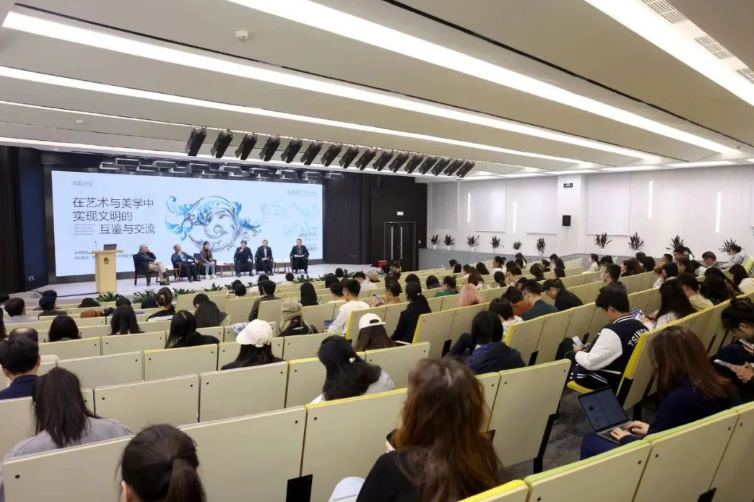
The event was presided by Tan Chuan, the Secretary of the Party Committee of the Academy of Fine Arts of Tsinghua University. Qin Chuan stressed the importance of mutual learning and exchanges among civilizations, put an emphasis on today's challenges and opportunities and hope art and aesthetics can build Bridges between civilizations, break boundaries, promote dialogue and encourage more people to participate in the process of promoting mutual learning among civilizations.
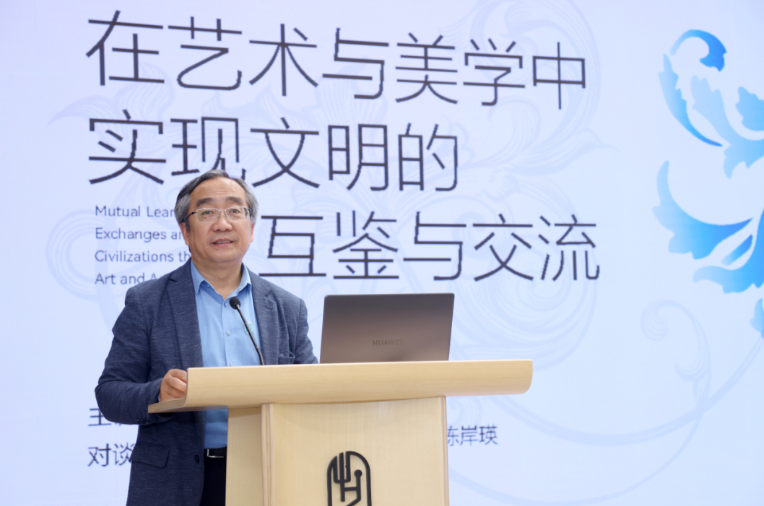
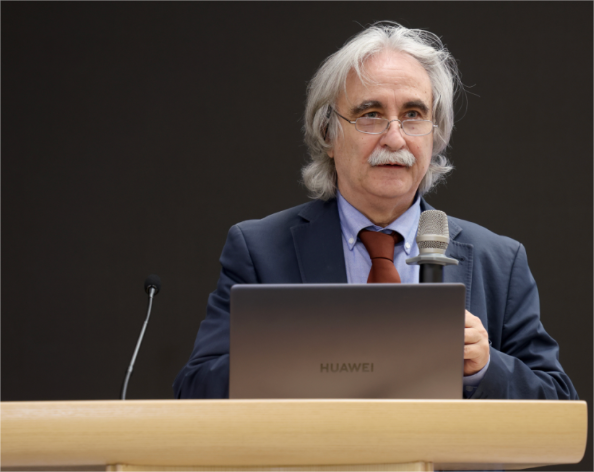
Professor Kostas believes that the power of art lies in its ability to transcend national boundaries. Art has always been a media of communication and inter-connectivity between cultures from ancient Chinese landscape paintings to modern art movements in Europe.
Introduced by Qi Baishi, Chinese aesthetics has also been explored on the lecture. Professor Kostas believes that Chinese aesthetics emphasizes life, energy, balance and harmony, symbol and metaphor, traditional Chinese philosophy has also exerted a deep influence on both Chinese aesthetics and Western classical philosophy.
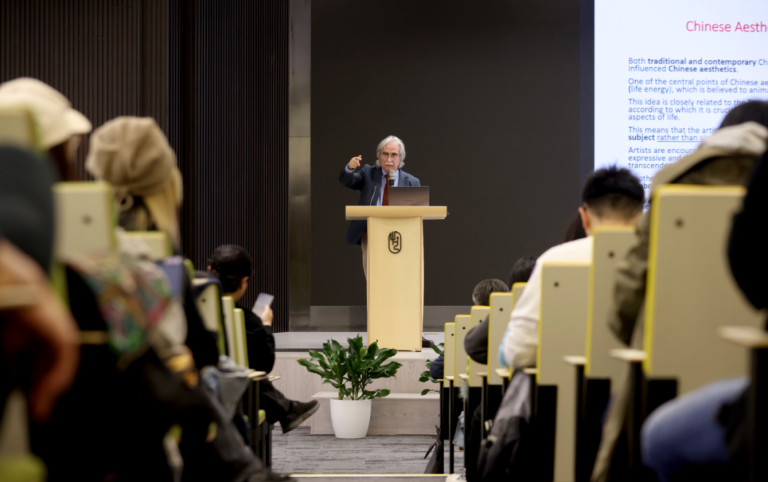
Professor Kostas introduced the concept of "aesthetics" in Western philosophy and introduced the influence of the 18th century European Enlightenment on aesthetic theory. According to Professor Kostas, aesthetic experience is a unique way for people to appreciate and perceive the work of art. There may be differences in the understanding and expression of aesthetics in different cultures, but aesthetic experience is universal. Traditional Chinese painting emphasizes nature, materials and modes of expression, while modern European art emphasizes form, materials and innovation. Although different in style, aesthetic values cross cultural boundaries and provide a unique expression of what is common to humanity. Different countries and cultures have their own aesthetic concepts, so the levels and concepts of culture must be fully understood and respected.
He emphasizes the importance of rationality in shaping our cognitive structure of the world, it gives us a structured understanding of the world that enables us to perceive beautiful experiences and incorporate those experiences as part of the natural world. Artists have a range of stylistic options when it comes to conveying meaning, value and emotion and aesthetic taste constructs the ability to establish a connection between the audience and the art.
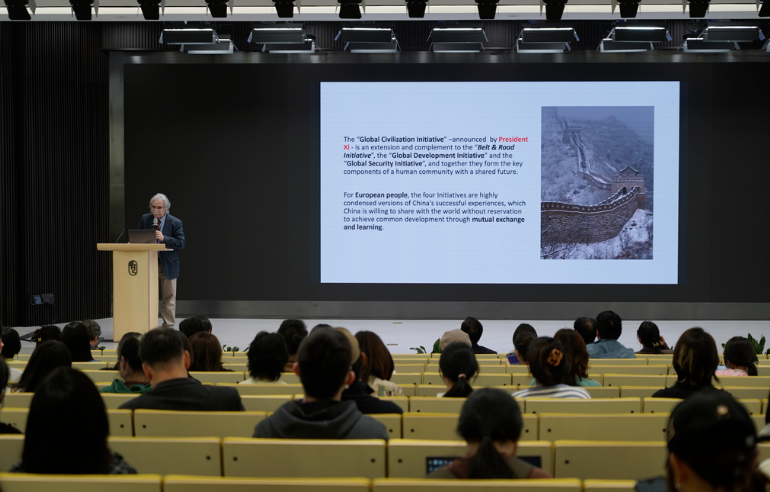
Professor Kostas also mentioned the influence of Chinese culture on Europe where China has been an important player in terms of cultural exchange. From ancient painting traditions to contemporary art movements, Chinese culture has influenced artists and creators around the world. Through the Global Civilization Initiative, Chinese culture and art continues to influence the world, while absorbing influences from other cultures. Such cross-cultural exchanges not only contribute to mutual understanding and cooperation, but also promote the development and progress of civilization.
At the end of his speech, Professor Kostas stressed the importance of dialogue between Chinese and Western cultures and the need for mutual understanding and respect between different cultures. He believes that although Chinese and Western aesthetics have similarities, they also have their own unique features which should be studied more widely to promote mutual understanding.
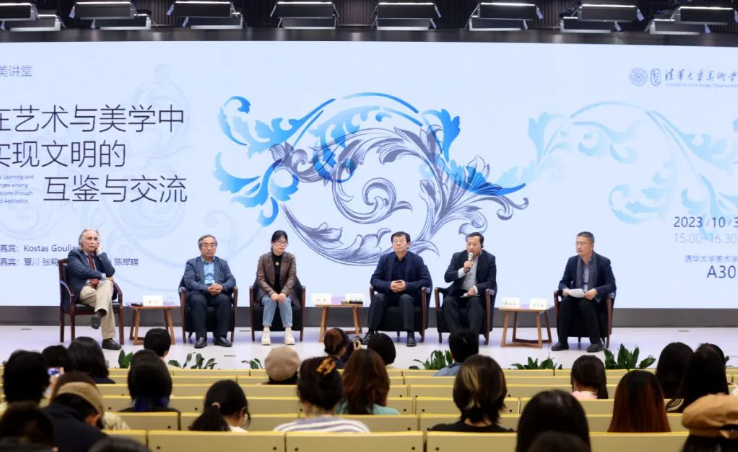
Round Table Talk
In the following round table talk, the guests discussed how to achieve mutual learning and exchange of civilizations through art and aesthetics. Such as technical rationality, cultural identity, the Belt and Road Initiative and specific practices, civilization and culture. Among them, Professor Kostas believes that civilization is partly based on the achievements of human art, and it is art and civilization that build Bridges, create rules and promote the prosperity of human society.
Professor Shi Zhiqin shared his profound insights in the field of international relations and his research results under the Belt and Road Initiative. Professor Zhang Chenggang discusses the relationship between mutual learning of civilizations and social governance from the perspective of sociology. Professor Zhang Li has rich research experience in the field of communication and brings a new perspective on communication to the audience. From the perspective of art history, Professor Chen Anying shared how to realize mutual learning and exchange of civilizations through art and aesthetics. He believed that beauty was emotional and it would become a universal language. Tan Chuan concluded that we need to deal with the relationship between nationality and world, tradition and modernity, physical and metaphysical; In addition, it is necessary to advocate new art in the new era and new life and promote the creative transformation and innovative development of China's excellent traditional culture.